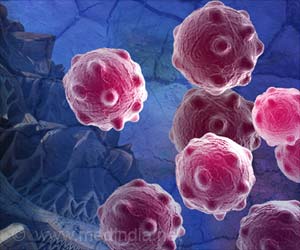Urine analysis has shown promising results in cancer (pancreatic cancer) diagnosis. It determines the presence of short strands of DNA fragments in the urine.

- Urine analysis is an important diagnostic tool that is used for the diagnosis and monitoring of diseases
- DNA fragments in urine can be analyzed to detect early-stage cancers, especially pancreatic cancer and malignancies in children
- Urinalysis is a non-invasive method that transforms detection and treatment outcomes
Liquid Biopsy and Urine Analysis
Scientists were inspired by liquid biopsy, in which the blood sample is collected to analyze the presence of cancer cells from a tumor circulating in the blood or for pieces of DNA from tumor cells in the blood.Read More..
Scientists from TGen and their colleagues from Baylor University and Phoenix Children's Hospital have found that these DNA fragments are not random and indicate a difference between healthy individuals and those with cancer.
Senior author of the study, Muhammed Murtaza, M.B.B.S., Ph.D., an Associate Professor and Co-Director of TGen's Center for Noninvasive Diagnostics has said that there are various steps between where they are now and where they want to be- detecting cancer from a urine sample. However, the results of this study are an encouraging first step.
Previously Dr. Murtaza led a team of TGen scientists to develop the technique of liquid biopsy. Liquid biopsy reduces the need for many surgical biopsies of suspected tumors. Hence, the physicians can monitor cancer in their patients more frequently as it is a less invasive technique than surgical biopsy.
Urine samples further reduce the physical invasiveness to zero as the sample can be collected at home and mailed in for analysis, thus eliminating the need to visit the lab.
How Was This Method Developed?
Scientists collected tissue samples from children (malignancies spread fast) with various cancers and adults with pancreatic cancer (early detection is critical) and mapped the DNA fragmentation profiles in their urine.Across multiple individuals, the fragmentation profiles, length of the DNA fragments, and the regions of the genome where the fragmentation occurred were remarkably similar. This informed the scientists what type of cells contributed to the fragments.
Dr. Goel said, “If the study results come to fruition, our urinalysis technology would be a remarkable breakthrough in the detection of many cancers, especially in pancreatic cancer. If cancer is detected early, it could substantially lower the mortality rate for what is currently the third leading cause of cancer death in the U.S."
Even though the early results are promising, the scientists indicate that they need to test their findings in much larger populations of cancer patients and identify differences between men and women, young and old, and those with co-morbidities, such as diabetes and other chronic diseases.
One of the paper’s authors, Daniel D. Von Hoff, M.D., TGen Distinguished Professor said, “This is a fundamental new finding and provides a potentially dynamic path forward for the early diagnosis of cancer, given that urine is one of the easiest samples to collect. If follow-on studies yield positive results, I could one day see this test becoming an integral part of one's annual physical."
Reference:
- Havell Markus et al. Analysis of recurrently protected genomic regions in cell-free DNA found in urine. Science Translational Medicine, 2021; 13 (581): eaaz3088 DOI: 10.1126/scitranslmed.aaz3088
Source-Medindia














